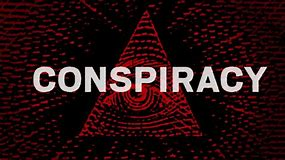In a world where powers are shifting, mistrust among global powers is escalating while climate change is ever-present. Conspiracy theories emerge as people’s emotional state is thrown off balance.
Conspiracy theories like the existence of the heartless establishment gained popularity in the United States presidential polls and it never became crystal clear whoever made up the establishment. The Establishment seems similar to the Illuminati in its powerful and filtrating capabilities. Currently, the theory being propagated is that the establishment is responsible for coronavirus with their intention being to get rid of the aged population.
Coronavirus and the establishment conspiracy theories to wipe out the aged?
The aged are no longer productive in efforts to build their nation’s economies since they don’t have the energy to work. Covid–19 could be a perfect method of eliminating them without having to be suspected of genocide. Coronavirus pandemic caught the world in a turmoil regarding climate change.
The loss of biodiversity and proliferated levels of pollution and uncharted weather events leading to global climate change. Therefore, immediate efforts in mitigating climate change would be to alter peoples’ way of living significantly.
Coronavirus will ultimately reduce the population and eventually the planet will survive the climate change scourge. The argument could also depict the comprehension of climate change matters have gone wrong.
According to Paul R. Ehrlich’s theory about the population bomb, human beings are huge consumers of the world resources, therefore, leading to mere survival chances. However, considering Covid–19 as the world’s solution for overpopulation would be a very lazy call since overpopulation is not solved by exposing people to a viral carnage.
Conspiracy theories feed on fear and uncertainty
Conspiracy theories usually thrive on fear and uncertainty. However, there are easier ways in which readers can identify and disregard a conspiracy theory. People should ask themselves several questions before concluding that theory would be positive or negative. One question would be whether the organization that told the story is credible. Is the propagated conspiracy theory even believable? Is the theory written credibly in a manner that credible news outlets handle the news? Is the theory under political inclination?
A huge percentage of these questions boil down into the practice of common sense and especially looking critically at the origin of the theory.
It is not practical for any media to water down its years of credibility by writing uninformed conspiracy theories in full journalistic way. Reviewers in many social media sites would write their opinions without basing the theories on facts and evidence.
In as much as conspiracy theories are largely not factual, people tend to believe them in periods of attacks and uncertainty. They depict the manner in which the public has been destabilized by the unprecedented situations. The theories do not ease uncertainty but rather they escalate it.
Featured image credits: Bing







